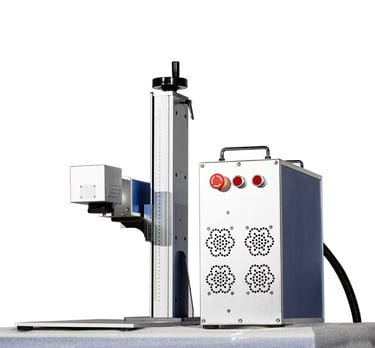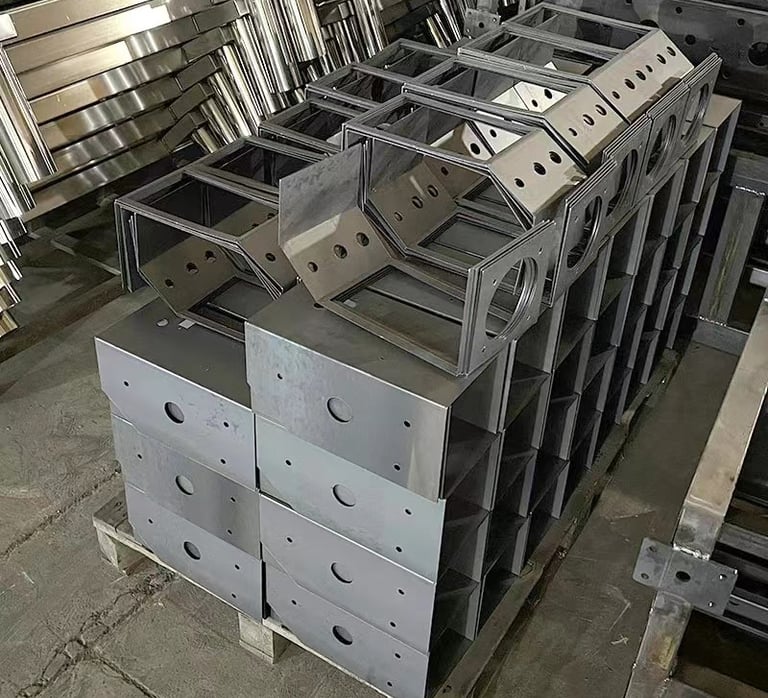Exploring the Versatile World of Industrial Equipment: Innovations and Applications for Modern Businesses
INDUSTRIAL SUPPLIES
9/19/20245 min read


Introduction: The Lifeblood of Modern Industry
In today’s world, the demand for efficiency, precision, and cost-effectiveness in business operations has never been higher. From manufacturing to retail, every industry relies on a range of tools and machines to meet these expectations. Whether it’s laser cutting machines used in heavy industries or dental equipment essential for healthcare professionals, modern equipment plays a vital role in shaping the future.
But what exactly drives the success of businesses when it comes to industrial equipment? In this blog, we will explore a variety of key industrial tools, their applications, and their importance to different sectors. Each piece of equipment brings unique advantages, contributing to streamlined operations and enhanced productivity. Let’s dive into this world of innovation.
Expanded Metal Mesh: Strength and Flexibility in One
Expanded metal mesh is one of the most versatile materials used across multiple industries. From construction to automotive and even design projects, this material is known for its lightweight nature combined with incredible strength. The perforated nature of expanded metal mesh makes it highly durable while providing flexibility for different applications.
When used in construction, it provides structural support without adding unnecessary weight. Automotive industries use expanded metal mesh for filters, grills, and protective barriers. This multifunctionality makes it an indispensable material.
Electronic Weighing Scales: Precision at Your Fingertips
Electronic weighing scales have revolutionized the way businesses measure products. Whether you’re in a laboratory, a warehouse, or a retail store, precision is key. The advancement in electronic technology has made these scales not only more accurate but also more user-friendly.
Gone are the days of manual weighing, where errors were common. Today’s electronic scales are equipped with advanced digital displays, automatic calibration, and even Wi-Fi connectivity, allowing businesses to streamline their operations with minimal effort. Whether measuring ingredients in a bakery or conducting research in a lab, electronic weighing scales are a must-have tool.
Bakery Equipment: From Tradition to Modern Efficiency
The art of baking may be ancient, but the tools used to bake have evolved significantly. Modern bakery equipment ranges from dough mixers to proofing ovens, each playing a crucial role in ensuring consistency and quality. In large-scale production facilities, automation is key.
Dough dividers, sheeters, and automatic ovens allow bakeries to produce thousands of loaves or pastries daily without compromising quality. These machines are programmed to replicate the precision of a skilled baker but at a much faster pace. It’s clear that technology has brought the world of baking into the future.
Sewing Machines: The Seamless Evolution
Sewing machines have come a long way from their early days. In the modern textile industry, sewing machines are no longer just tools for stitching fabrics together. They are now automated, programmable, and highly efficient.
Industrial sewing machines have the ability to handle tough fabrics such as denim and leather, while also delivering precise stitching for intricate designs. With features such as auto-thread cutting and pattern memory, these machines are revolutionizing garment production, reducing the need for manual labor while increasing efficiency and precision.
Steel Sheets and Pipes: Foundations of Infrastructure
Steel sheets and pipes are the backbone of the construction industry. From building skyscrapers to underground pipelines, steel is a material that ensures structural integrity and long-term durability. It’s no surprise that steel has been a go-to material for engineers and builders for centuries.
With advancements in production techniques, steel sheets and pipes are now stronger, more flexible, and resistant to corrosion. They form the skeleton of modern infrastructure, ensuring that buildings, roads, and bridges remain safe for generations to come.
Laser Cutting Machines: Precision and Speed Redefined
Laser cutting machines have revolutionized industries that rely on high precision, such as automotive, aerospace, and electronics. These machines use focused light beams to cut through materials like metal, plastic, and even wood with unparalleled accuracy.
The advantage of laser cutting is not only its precision but also its speed. Traditional cutting methods may require multiple steps, but laser technology simplifies this process, reducing waste and enhancing productivity. Moreover, CNC (Computer Numerical Control) integration allows for mass customization, making it possible to produce intricate designs with ease.
CNC Machines: The Power of Automation
CNC machines have transformed manufacturing processes worldwide. By allowing precise control over cutting, milling, and machining processes, CNC machines eliminate the need for manual intervention. This leads to fewer errors and faster production times.
The beauty of CNC technology lies in its adaptability. It can be used for a variety of materials such as wood, metal, plastics, and composites. CNC machines are integral to industries like automotive manufacturing, aerospace engineering, and even furniture design.
Laser Technology: Shaping the Future
Lasers aren’t just for cutting. They’re used in a wide range of applications, from medical devices to scientific research. In the world of manufacturing, lasers are indispensable. Beyond cutting, lasers can engrave, weld, and even analyze materials.
The precision of laser technology allows manufacturers to create intricate components for industries like aerospace, electronics, and even jewelry. The flexibility and scalability of lasers make them ideal for both small workshops and large-scale factories.
Seating Solutions: Comfort Meets Durability
In industries such as transport, healthcare, and even entertainment, seating solutions need to combine comfort with durability. Ergonomically designed seating helps reduce strain on the body, which is particularly important for jobs that require long hours of sitting.
Today, seating solutions are more than just chairs. Advanced materials, adjustable features, and ergonomic designs ensure maximum comfort, enhancing productivity and reducing injury risks. From office chairs to airplane seats, the emphasis is on creating a balance between comfort and function.
Stamping Equipment: The Backbone of Manufacturing
Stamping machines are essential to producing everything from automotive parts to household appliances. They enable the mass production of components through processes like cutting, bending, and embossing sheet materials.
Stamping technology has evolved to include high-speed operations, reducing production times and increasing accuracy. Industries rely on these machines to create parts that meet strict quality standards while keeping costs down.
Measuring Tapes: Simple Yet Essential
While measuring tapes may seem simple, they are fundamental in industries like construction, carpentry, and textiles. A small error in measurement can lead to significant issues later in a project, making precision essential.
Today’s measuring tapes come with advanced features such as laser measurements, built-in levelers, and ergonomic designs for easy handling. They remain an indispensable tool despite technological advancements in other areas.
Filters: Purifying Systems for Enhanced Performance
Filters play a critical role in a wide variety of industries, from automotive to water treatment plants. They help remove contaminants, ensuring that systems function efficiently and last longer.
Whether it’s an air filter in a car engine or a water filter in a purification plant, the importance of filtration systems cannot be overstated. These systems help improve air and water quality, protect machinery, and promote healthier environments.
Drills: Powering Through Tough Materials
Drills are essential tools in industries such as construction, manufacturing, and even home improvement. From drilling holes in concrete walls to precision drilling for electronic components, the versatility of drills is undeniable.
Modern drills are designed to handle different materials, including wood, metal, and stone, and come with advanced features such as variable speeds and torque control, making them indispensable in a variety of industries.
Dental Equipment: Precision and Hygiene at the Forefront
Dental equipment has come a long way in ensuring patient care and hygiene. Today’s dental tools include precision instruments for procedures like fillings, crowns, and root canals, while maintaining the highest standards of cleanliness.
Dental practices rely on high-quality equipment to ensure patient comfort and safety. Sterilization systems, digital X-rays, and modern examination chairs all contribute to more effective and efficient dental care.
Conclusion: Industrial Equipment, The Silent Force Driving Progress
Industrial equipment is the backbone of every major sector, from healthcare to construction. These machines and tools make processes faster, safer, and more efficient, driving progress in ways that often go unnoticed. With each advancement, industries become more capable of meeting the growing demands of modern society. Whether it’s a laser cutting machine creating precise parts or a dental chair offering comfort during a procedure, the importance of these tools cannot be overstated. They are the silent heroes of innovation.


